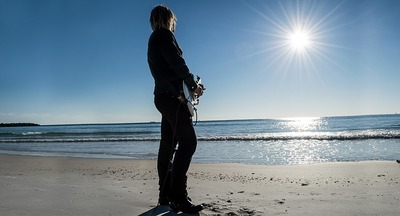Django Reinhardt, the legendary jazz guitarist, left an indelible mark on the world of music with his pioneering style and extraordinary talent. While his influence remains very much alive, Django Reinhardt himself is no longer with us. Let’s delve into his life, his legacy, and the impact he continues to have on the music world today.

The Life of Django Reinhardt
Birth and Early Life:
Django Reinhardt was born on January 23, 1910, in Liberchies, Belgium. Raised in a Romani (Gypsy) family, he spent his early years traveling through France and Belgium, where he was exposed to a rich tapestry of musical influences.
Career Highlights:
Reinhardt’s career took off in the 1930s when he formed the Quintette du Hot Club de France with violinist Stéphane Grappelli. This group became one of the most influential jazz bands in Europe, pioneering the genre of Gypsy jazz. Django’s unique guitar technique, developed after a fire left him with limited use of two fingers on his left hand, became a hallmark of his playing.
Later Years:
After World War II, Django continued to perform and innovate. He spent some time in the United States, playing with notable jazz musicians like Duke Ellington. Despite facing health issues and a changing musical landscape, Reinhardt remained a vibrant and creative force until his untimely death.
The Passing of Django Reinhardt
Django Reinhardt passed away on May 16, 1953, at the age of 43. He died suddenly from a brain hemorrhage in Samois-sur-Seine, France. His death was a significant loss to the music world, but his legacy has only grown over the years.
Django’s Enduring Legacy
Influence on Music:
Reinhardt’s influence on jazz and guitar music cannot be overstated. His pioneering work in Gypsy jazz has inspired countless musicians and guitarists. His techniques, compositions, and recordings are still studied and celebrated today.
Tributes and Homages:
Many artists and festivals honor Django’s legacy. The annual Django Reinhardt Festival in Samois-sur-Seine attracts musicians and fans from around the world, celebrating his contributions to music.
Educational Impact:
Django’s music is a staple in jazz education. His improvisational style, chord progressions, and unique phrasing are taught in music schools globally. Books, documentaries, and instructional videos continue to introduce new generations to his work.
Cultural Significance:
Reinhardt’s life and music are a testament to overcoming adversity. His ability to create beautiful and complex music despite his physical limitations is a source of inspiration for many. His story resonates not just with musicians but with anyone who faces challenges and strives to turn them into strengths.
Conclusion
Although Django Reinhardt passed away in 1953, his spirit lives on through his timeless music and the countless artists he has inspired. His innovative guitar techniques and unique sound continue to influence musicians across various genres. While we cannot see him perform live anymore, his recordings and compositions ensure that his legacy endures.
Django Reinhardt’s contributions to music have cemented his place as a legendary figure whose impact transcends time. His life’s story is one of extraordinary talent, resilience, and an unyielding passion for music, making him a true icon in the world of jazz and beyond.




